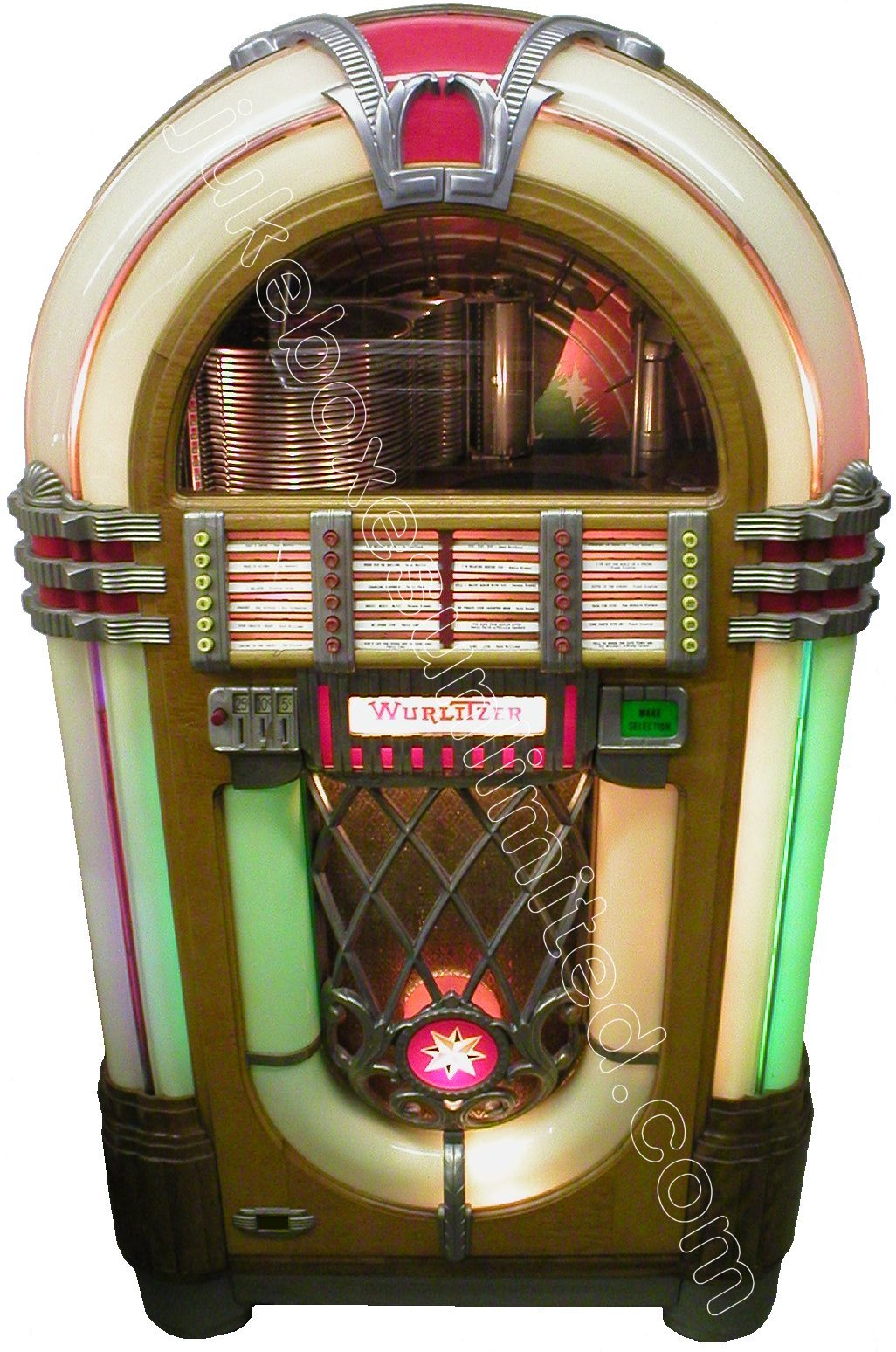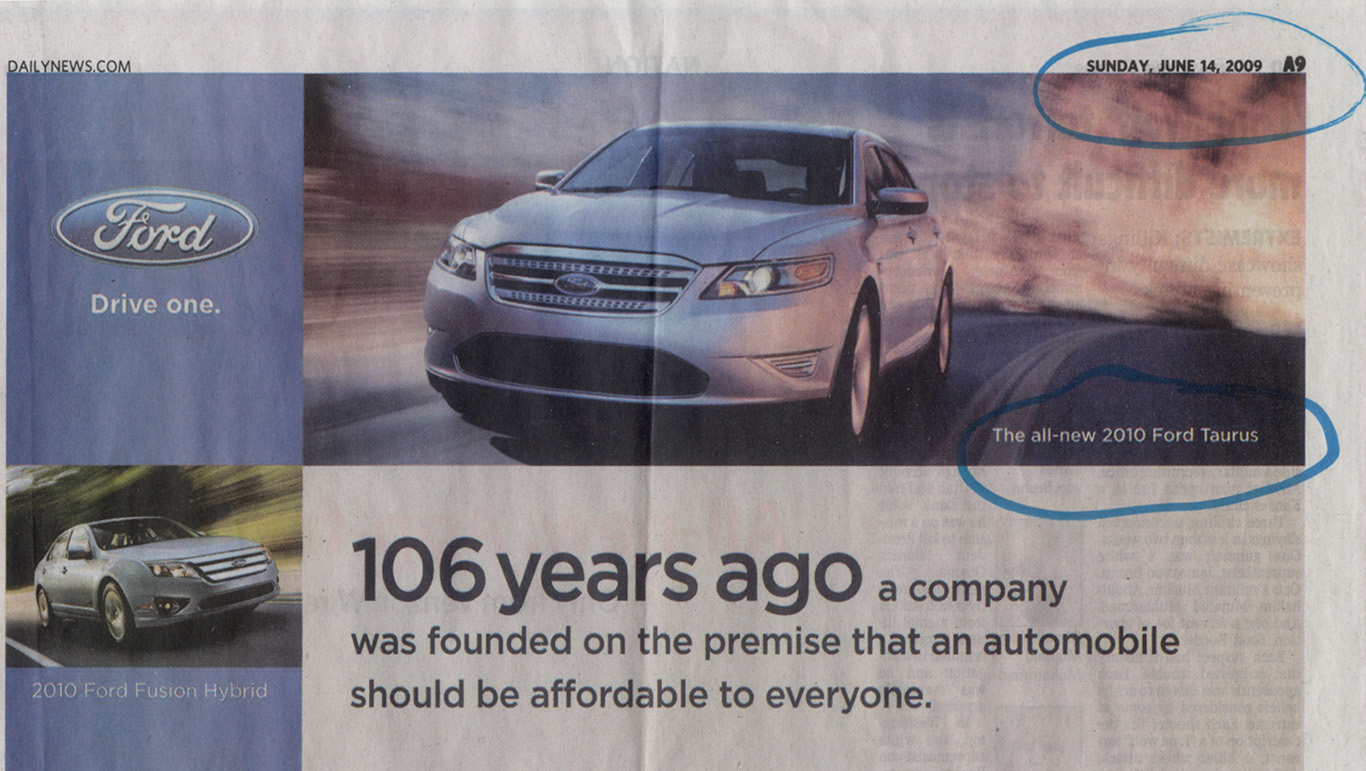|
||||||||||
Jukebox Year Confusion
Wurlitzer's
model "1015" jukebox, affectionately called
"Bubblers", were originally made by Wurlitzer only in 1946
and 1947 but never in the fifties. When one thinks of a jukebox in a soda fountain at the downtown drugstore it would definitely not be the current model. In fact it would most likely be about 10 years old if not older. The reason is that the only time the Walgreen's or Rexall juke was played was for an hour or so after school when the kids were waiting for the bus. Thus it was at the bottom of the money making rung. Now it makes sense, even for folks who grew up in that time period, to think that a “bubbler” looking juke was from the fifties. Much like automobiles, jukebox manufacturers attempted to beat their competitors by introducing the next model year the last few months of the preceding year. See this example from FORD for the 2010 Ford Taurus in June of 2009. So a jukebox that was developed during one year might be introduced in the middle of the next year for the following year.
Here’s an interesting side note: Now if you wonder what happened to the juke that got pulled out of the last location, in many cases it was literally destroyed. Why? Because the operator didn't want some "up-start punk" to get a hold of it, clean it up and set it in a location to compete with him. In fact Wurlitzer had an ingenious program where, if you traded in your old jukebox for a new one, they would destroy your old one for you. Nice way to get old product out of circulation, huh? That's done today by many products being made of plastic and breaking themselves. What Year Is My Seeburg Jukebox?
|
Jukeboxes Unlimited
®
All rights reserved.


